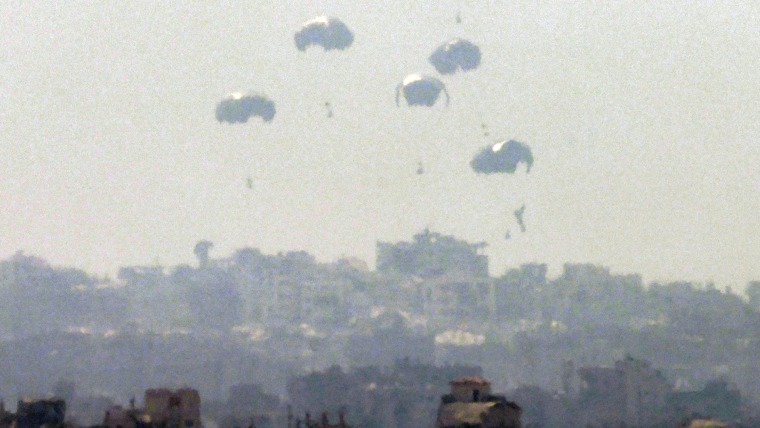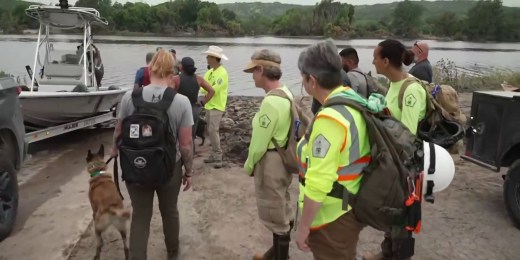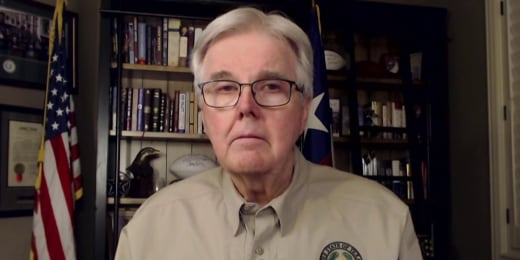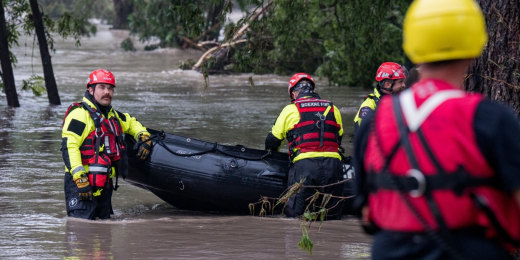https://theworldfinancialforum.com/participate/



Glowing Up! How One League Is Putting a New Spin on Baseball
04:30

Paul Bugas, Director of Doomsday Fallout Bunker, Dies at 96
02:12

Nvidia’s $4 Trillion Milestone Puts Risks, Benefits of AI in Spotlight
04:41

AI Chatbot Grok Apologizes for Antisemitic Posts
01:02

Fan Celebrates Successful Open Heart Surgery with Sunday Mug
01:45

Trump Reflects on Assassination Attempt in Butler 1 Year Later
02:37

Search Teams Scour River as Texas Flood Response Scrutinized
02:07

Trump Shifts Tone on Eliminating FEMA After Texas Floods
02:03

Renée Zellweger talks Bridget Jones return, journey to Hollywood
08:05

Museum of BBQ Honors America’s Spicy History
02:41

Dr. Joseph Giordano, Who Saved Pres. Reagan’s Life, Dies at 84
02:13

Bride-to-Be Enjoys Bachelorette Party With Sunday TODAY Mug
01:38

Elon Musk Announces New ‘America’ Political Party
02:20

Tens of Millions Head Home After Long July 4 Holiday Weekend
02:10

Tropical Storm Chantal Hits South Carolina Shores
00:22

Texas Lt. Gov Speaks Out on Deadly Floods, Missing Campers
03:40

Texas Flood Death Toll Rises to 51 Amid Search for Survivors
02:09

Billy Crystal Looks Back on His Comedy Journey and Iconic Roles
08:12

Inside Jeff Bezos and Lauren Sánchez’s A-List Venice Wedding
04:06
UP NEXT

Angela Bassett Talks Presidential Film Roles, Chadwick Boseman
07:42

Glowing Up! How One League Is Putting a New Spin on Baseball
04:30

Paul Bugas, Director of Doomsday Fallout Bunker, Dies at 96
02:12

Nvidia’s $4 Trillion Milestone Puts Risks, Benefits of AI in Spotlight
04:41

AI Chatbot Grok Apologizes for Antisemitic Posts
01:02

Fan Celebrates Successful Open Heart Surgery with Sunday Mug
01:45

Trump Reflects on Assassination Attempt in Butler 1 Year Later
02:37

Search Teams Scour River as Texas Flood Response Scrutinized
02:07

Trump Shifts Tone on Eliminating FEMA After Texas Floods
02:03

Renée Zellweger talks Bridget Jones return, journey to Hollywood
08:05

Museum of BBQ Honors America’s Spicy History
02:41

Dr. Joseph Giordano, Who Saved Pres. Reagan’s Life, Dies at 84
02:13

Bride-to-Be Enjoys Bachelorette Party With Sunday TODAY Mug
01:38

Elon Musk Announces New ‘America’ Political Party
02:20

Tens of Millions Head Home After Long July 4 Holiday Weekend
02:10

Tropical Storm Chantal Hits South Carolina Shores
00:22

Texas Lt. Gov Speaks Out on Deadly Floods, Missing Campers
03:40

Texas Flood Death Toll Rises to 51 Amid Search for Survivors
02:09

Billy Crystal Looks Back on His Comedy Journey and Iconic Roles
08:12

Inside Jeff Bezos and Lauren Sánchez’s A-List Venice Wedding
In late July 2025, under mounting international pressure, Israel announced a significant—but temporary—shift in its Gaza operations. In a move criticized as long overdue, the Israeli Defense Forces (IDF) declared daily “tactical pauses” in fighting across three heavily populated areas of Gaza—Gaza City, Deir al-Balah, and al-Mawasi—lasting 10 hours each day to facilitate the delivery of desperately needed humanitarian aid ABP LiveABCSky NewsThe Washington Post.
At the same time, Jordan and the United Arab Emirates initiated airdrop operations, delivering roughly 25 tons of much-needed supplies—including flour, sugar, and canned food—into Gaza. Israel itself conducted its first-ever airdrop since the start of the conflict, dropping seven pallets of humanitarian goods The Times of Israel+1Sky NewsThe Washington Post.
Reactions from the Field
The United Nations agencies and aid organizations cautiously welcomed the new “humanitarian pauses” and corridors, acknowledging the move as a change—but one that falls short of what’s essentially required. Previously, obstacles including blocked border crossings severely hampered aid delivery India TodayIdeastream Public MediaThe Washington Post.
Humanitarian leaders were vocal—calling airdrops “expensive, inefficient, and, at times, dangerous.” Philippe Lazzarini, head of UNRWA, warned that these actions alone would not reverse Gaza’s spiraling hunger crisis ABP LiveAl JazeeraThe Washington Post.
Ground Realities and Humanitarian Despair
For months, Gaza has teetered on the edge of famine. The region’s dire conditions intensified following a near-total aid blockade beginning in early 2025, with Israel blocking most deliveries for months Wikipedia+1The Washington Post.
Since the easing of the blockade, aid distributions remained grossly insufficient—averaging only 69 truckloads per day, far below the 500–600 trucks the UN deems necessary to keep Gaza from descending further into humanitarian catastrophe ABP LiveThe Times of IndiaThe Washington Post.
Images of malnourished children and reports of civilians dying while attempting to access aid stirred global outrage, leading to renewed pressure on Israel to allow aid access—even if in minimal forms The Times of IndiaThe Washington Post.
Criticisms and Limitations
While Israel positions these measures as responsive to humanitarian need and a way to refute claims of deliberate starvation, aid groups remain skeptical. Airdrops are criticized as symbolic gestures that barely scratch the surface of Gaza’s crisis Al JazeeraABP LiveThe Washington Post.
Additionally, reports emerged that some airdropped pallets tragically fell on displacement tents—injuring civilians and underscoring the inherent dangers of airborne aid drops Al Jazeera.
Why It Matters
Even a temporary pause in military operations offers a critical—albeit slim—window for delivering lifesaving supplies.
This development signals two key things:
International pressure matters. Persistent global condemnation has occasionally influenced Israeli policy in moments of extreme crisis.
Aid logistics are still fundamentally broken. Airdrops and brief tactical pauses cannot substitute for safe, institutionalized, and scaled-up humanitarian access.
What Comes Next?
Sustained Aid Access: Gaza’s survival depends on reopening ground routes and crossings, not just airborne drops.
Policy Accountability: International bodies must monitor whether these pauses translate into real, actionable aid distribution—not serve as temporary PR.
Human Impact Over Politics: The crisis demands urgency, not symbolism. Lives hang in the balance, and temporary halts—no matter how well-intentioned—can’t paper over the larger failure of adequate humanitarian support.
Final Thoughts
Israel’s decision to pause attacks in some areas of Gaza and permit airdrops is a small breakthrough—one born from pressure and tragedy. But for the starving population of Gaza, it’s a lifeline imperfectly thrown. Without systemic change and reliable aid channels, these brief pauses may offer momentary relief—but not salvation.
Gaza’s famine will only end when policy is replaced with humanity, and political restraint gives way to consistent compassion.
04:06



















